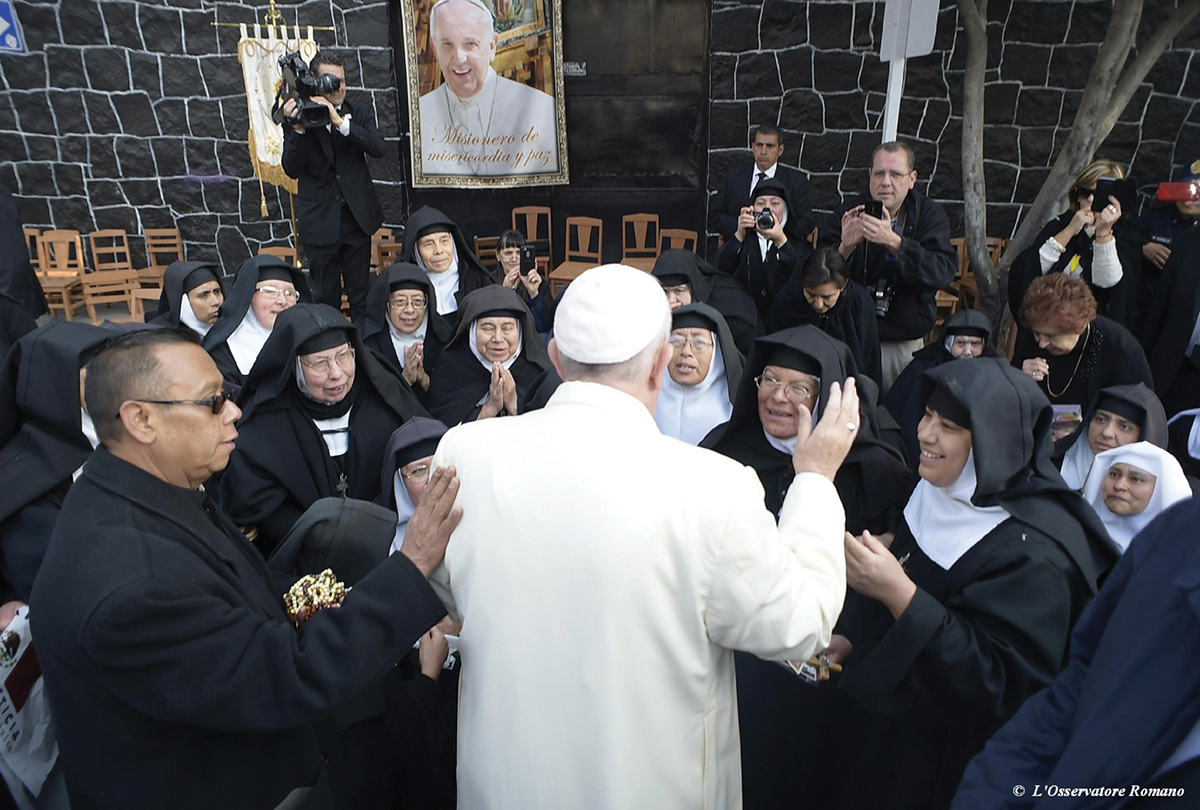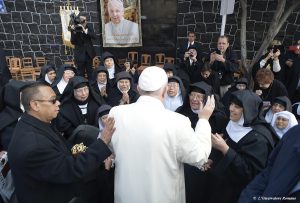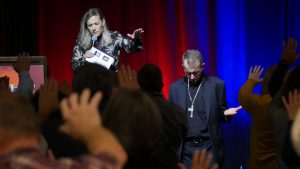
Question:
Why do the pope and some religious sisters/brothers change their name?
Answer:

This is another common question that both Catholics and others often ask and is worth taking some time to answer.
Before diving in, it’s worth noting that popes and religious sisters and brothers do not change names for the same reason. As we will see, although there are similarities, there are also differences between the two practices. We will begin with the practice of receiving a new name as a religious sister or brother.
The first thing to note is that the practice of receiving a new name as a member of a religious order is not a universal one. There are many religious orders (also referred to as religious communities) that simply use a new member’s baptismal or given name (their “first name”) as their name in community. So, a young woman named Natalie would simply be known as Sr. Natalie upon joining her community. Also, practices can change over time within the same community. At one point receiving a new name may have been the practice, but later retaining the baptismal name becomes the norm, or vice versa.
In those communities in which receiving a new name is the practice, the means by which this happens can vary. Sometimes the new member of the community has some say in what his or her new name will be (for example, by submitting three potential names to the head of their community), and in other communities, it is left up to the leader of the community.
That’s the “whether” and the “how” of a new religious name, but what about the “why”? In short, the most common reason a new name is given is to make more “visible” the reality that this person is entering a new state in life, as a member of a religious community. Again, this isn’t necessary for a man or woman to enter the religious state of life, but some communities use the giving of a new name to indicate the newness of the life they’re entering.
What about popes? As mentioned, while there are commonalities as we will see, there are also differences. One difference is that the taking of a new name as pope is just that—a “taking.” While a member of a religious community receives a new religious name as (typically) decided by the head of the community, a man who is elected pope chooses his own papal name; it is not chosen for him.
Another difference is that this is a practice which is completely up to the pope himself, meaning that our next pope could decide that he will be known by his baptismal name instead of a new papal name. Here, some history of this practice is helpful.
The first instance of a pope taking a different name upon his election as pope was John II in 533. John II’s given name was Mercurius, but he didn’t think that it would be appropriate for the pope to have a name taken from a pagan god (Mercury), so he took the name of a previous pope, John (thereafter known as John I), who had died as a martyr and was venerated as such. Even after John II, however, it remained common for popes to keep their baptismal names. It wasn’t until the tenth century that it became common for popes to take new names, and even up to the sixteenth century some popes kept their baptismal names (the last pope to do so was Marcellus II, who was elected in 1555).
Why though, the specific name that is chosen? Here we find a commonality with the practice of religious communities: some reference is made to a predecessor. In the case of religious communities, that’s typically a saint, perhaps one who played an important role in the history of the community. In the case of popes, it might be a previous pope (John Paul II was thinking of his three predecessors: John XXIII, Paul VI and John Paul I) or a previous saint (Francis was thinking of St. Francis) or perhaps even a family member (John XXIII was thinking of his father as well as the church in which he was baptized, in addition to the 22 other popes who’d had the name).
 Hopefully that sheds some light on this Catholic practice.
Hopefully that sheds some light on this Catholic practice.
Be sure to check out the additional resources at sfcatholic.org/answer. If you have a question you need an answer to, email rkranz@sfcatholic.org.
Chris Burgwald holds a doctorate in theology and is the director of Adult Discipleship and Evangelization for the Diocese of Sioux Falls.


